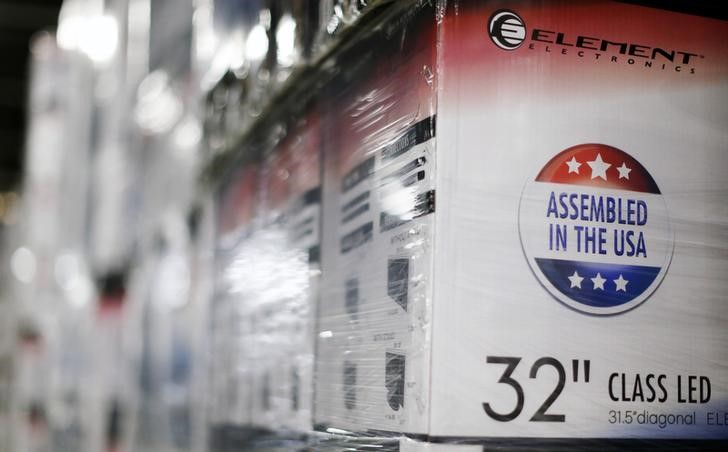Investing.com - Manufacturing activity in the Philadelphia-region deteriorated in January to the lowest level in five months, dampening optimism over the health of the economy.
The Federal Reserve Bank of Philadelphia said that its manufacturing index declined to 22.2 this month from December's revised reading of 27.9. Analysts had expected the index to dip to 25.0 in January. Although now at its lowest reading in five months, the index has stayed within a relatively narrow range over the past eight months.
On the index, a reading above 0.0 indicates improving conditions, below indicates worsening conditions.
The other broad indicators continue to suggest overall growth. The shipments index remained at a high reading and increased 6 points.
The index for current new orders, however, decreased 18 points. Nearly 36% of the firms reported an increase in new orders this month, but 26% reported declines.
Both the delivery times and unfilled orders indexes decreased this month: The unfilled orders index was negative for the first time in 16 months, and the index of delivery times fell to its lowest reading in 10 months.
The future indexes reflecting expected growth over the next six months remained at high levels, although the indexes fell from their readings in December.
USD/JPY was at 111.15 from 111.20 ahead of the release of the data, EUR/USD was trading at 1.2240 from around 1.2230 earlier, while GBP/USD was at 1.3865 from 1.3860 earlier.
The US dollar index, which tracks the greenback against a basket of six major rivals, was at 90.37, compared to 90.41 ahead of the report.
Meanwhile, U.S. stock futures pointed to a mixed open. The Dow futures gained 0.1%, the S&P 500 futures were flat, while the Nasdaq 100 futures shed 0.2%.
Elsewhere, in the commodities market, gold futures traded at $1,328.40 a troy ounce, compared to $1,328.90 ahead of the data, while crude oil traded at $64.06 a barrel from $64.05 earlier.
